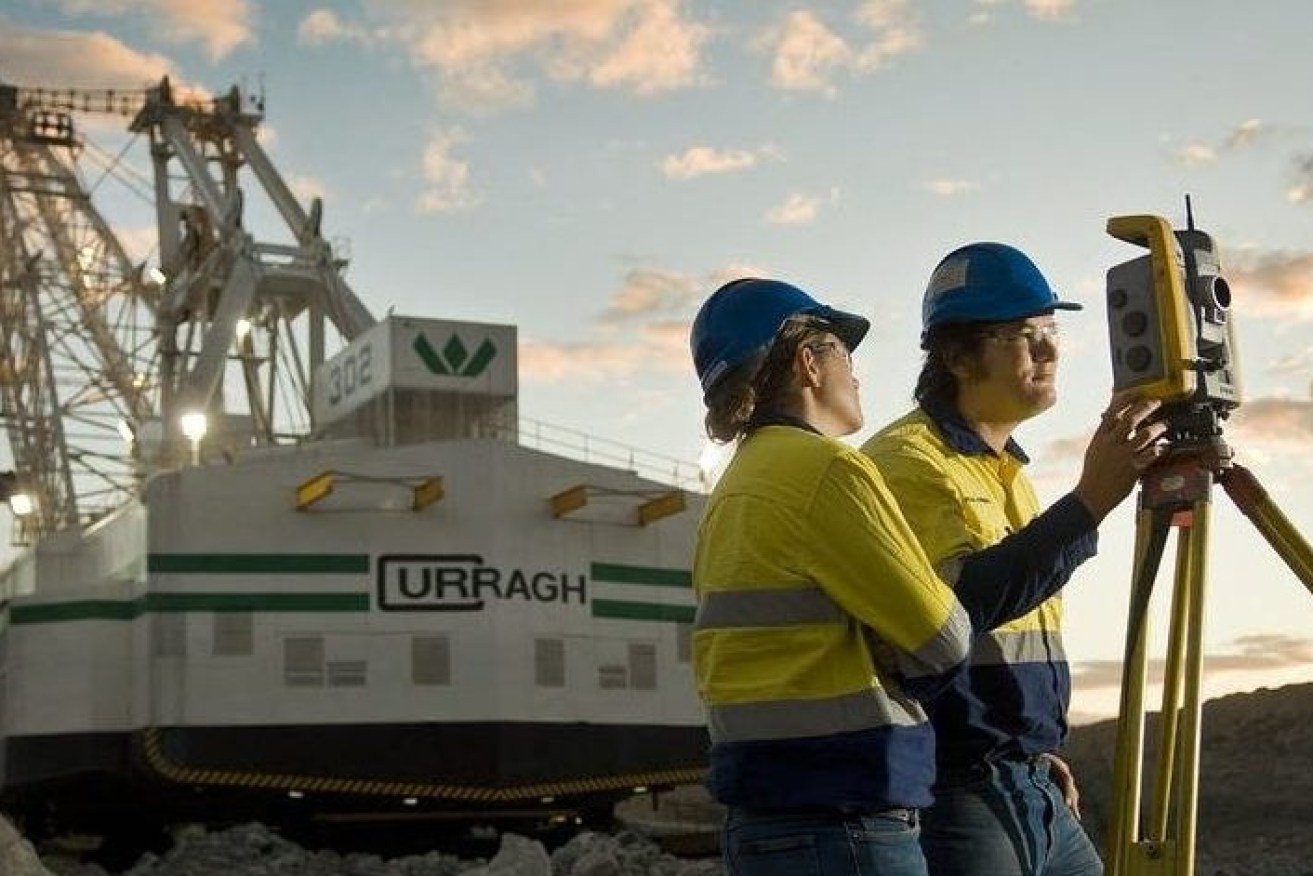Could Qld’s economic engine suddenly become an anchor?
Queensland’s reliance on coal will come with an significant economic impact as the world moves to net zero emissions, with the economy forecast to contract by 5.9 per cent by 2050 and employment to fall by almost 100,000, according to an academic analysis.


Operations at the Curragh mine in central Queensland (Image supplied)
Queensland’s reliance on coal for electricity production and export is its biggest issue and the Fitzroy region of central Queensland would have among the biggest job losses in the nation.
The state’s reliance on agriculture would also prove an economic drag.
But that job decline is not as dramatic as it may seem. The study points out that in terms of employment, Queensland was projected to expand by around 1.2 million people without decarbonisation. With decarbonisation that expansion was slightly less, 1.1 million persons.
And nationally, the total number of jobs lost would be only 6000 because other industries would grow.
The outcomes point to the difficult politics that surround coal and how political parties at the upcoming federal election will have to tread carefully in central Queensland.
The study, by Professor Phillip Adams of the Centre of Policy Studies at Victoria University, follows claims by former CleanCo chief executive Maia Schweizer recently that the cost of decarbonising Queensland would be at least $100 billion.
While nine regions in Australia would be adversely impacted, another 46 regions were identified as likely to gain employment. They were more highly exposed to the industries that would grow.
The study found that coal mining would continue in 2050 due to continued international demand, but production would drop 34 per cent and hours worked would fall 37 per cent compared to no more net-zero.
The study assessed the impacts of net-zero in a slightly different way to the the McKinsey analysis commissioned by the Federal Government.
The university asked what would happen to the Australian economy if the world (including Australia) moved to net-zero by 2050, comparing it to what would happen if they did not.
“We found that despite deep cuts in emissions, the Australian economy would continue to grow strongly in terms of production and employment,’’ Adams said in his analysis published in The Conversation.
“However, after 30 years real gross domestic product and income would be slightly lower than they would have been without action.
“In contrast to the government’s projected gain of around 1.6 per cent after 30 years (six months of economic growth) we found a loss of around 1 per cent, equivalent to four to five months of economic growth.’’
It said that while all regions in Australia would grow relative to 2021, the constraints on production and employment warranted targeted policy interventions to support industries and regions disproportionately affected by net-zero emissions policies.
It found Australia would have about the same number of jobs by 2050 under either scenario, but industries such as coal mining would suffer, “although not as much as might be thought’’.
It said decarbonisation would provide an impetus to many industries, especially renewable electricity and forestry which would almost double as decarbonisation boosted tree planting in order to take advantage of bio-sequestration opportunities.
“Electricity would replace more than all the jobs lost in coal generation with additional jobs in renewables generation and electricity distribution and supply as more of the economy became electric-powered.’’












